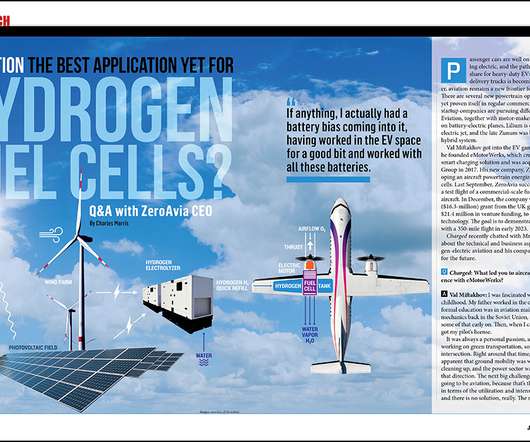British Airways partners with Velocys on renewable jet fuel from household waste
Green Car Congress
SEPTEMBER 19, 2017
British Airways has entered a partnership with Velocys to design a series of waste plants that convert household waste into renewable jet fuel to power its fleet. As well as helping the airline industry reduce its carbon emissions this initiative will also significantly reduce the amount of waste going to landfill.












Let's personalize your content